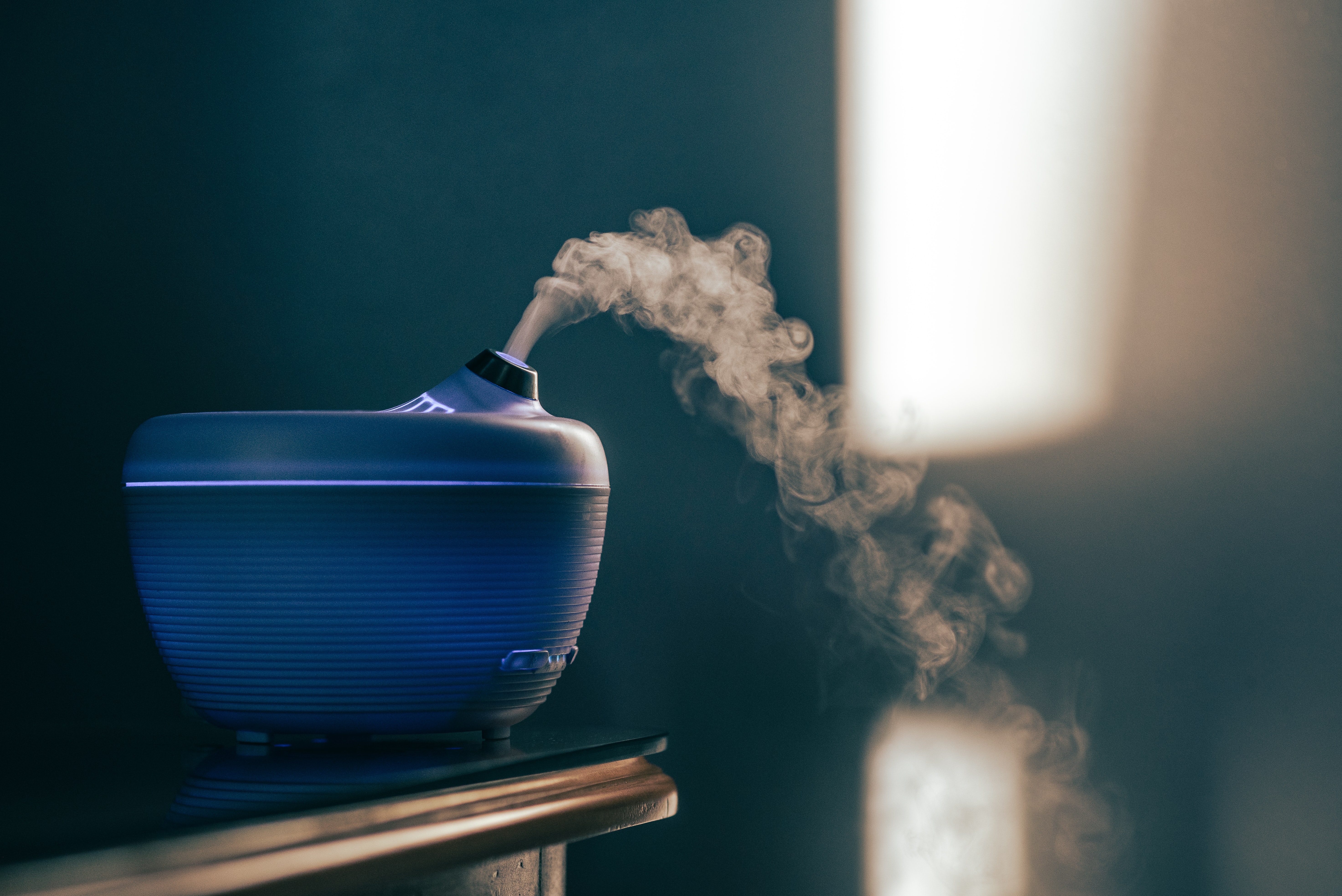Discover Lemongrass Essential Oil
A refreshing scented oil with many health benefits

Lemongrass essential oil is a highly versatile oil with a wide range of health benefits. This oil is derived from the lemongrass plant, which is native to tropical regions of Asia, Africa, and South America. Lemongrass has been used for centuries in traditional medicine to treat a variety of ailments, and its essential oil is now becoming more popular in the West for its therapeutic properties.
Extraction Process of Lemongrass Oil
Lemongrass essential oil is extracted from the leaves and stems of the lemongrass plant using a process called steam distillation. Here is a step-by-step description of the process:
- Harvesting: The lemongrass plant is harvested when it is at its peak, usually during the morning when the essential oil content is highest.
- Sorting: The harvested lemongrass is sorted to remove any debris and damaged leaves or stems.
- Chopping: The lemongrass is then chopped into small pieces to increase the surface area for steam distillation.
- Distillation: The chopped lemongrass is placed into a distillation chamber, and steam is passed through it. The steam causes the essential oil in the plant material to vaporize.
- Separation: The steam and vaporized essential oil mixture is then condensed back into a liquid form by passing it through a cooled coil. This mixture is then collected in a container.
- Collection: The essential oil and water are separated by using a separating funnel. The essential oil is then collected in a separate container.
- Filtering: The essential oil is then filtered to remove any impurities or remaining plant material.
- Bottling: The final step is bottling the essential oil, which is then labeled and stored in a cool, dry place.
Overall, the process of extracting lemongrass essential oil requires specialized equipment and expertise. The resulting oil is highly concentrated and contains the beneficial chemical compounds that make it a valuable natural remedy.

Chemical Compounds In Lemongrass Essential Oil
The primary chemical compound found in lemongrass essential oil is citral, which gives it its distinctive lemony scent. Citral is a potent antimicrobial agent, making lemongrass essential oil effective in fighting off harmful bacteria and viruses. Myrcene, another compound present in lemongrass oil, has anti-inflammatory properties, while limonene is known for its antioxidant benefits. Geraniol is a compound that is commonly found in rose oil and has a calming effect on the nervous system, making lemongrass oil a popular choice for aromatherapy.
What Are The Health Benefits of Lemongrass Essential Oil?

Lemongrass essential oil has many health benefits, both for physical and emotional health. Here are some of the most notable:
- Pain relief: Lemongrass essential oil has analgesic properties that can help alleviate pain caused by headaches, muscle aches, and joint pain.
- Digestive health: This oil can help improve digestion and alleviate digestive issues such as bloating, constipation, and indigestion.
- Stress relief: Lemongrass essential oil has a calming effect on the mind and body, making it useful for reducing stress and anxiety.
- Immune system support: This oil has antibacterial and antifungal properties that can help boost the immune system and protect against infection.
- Insect repellent: Lemongrass essential oil is an effective insect repellent and can help keep mosquitoes, ticks, and other pests at bay.

Lemongrass and Neurological Disorder Support
Lemongrass essential oil has been studied for its potential therapeutic effects on neurological disorders. One of the key chemical compounds found in lemongrass oil, citral, has been shown to have neuroprotective properties that may be beneficial in the treatment of neurological disorders.
Citral has been found to have antioxidant and anti-inflammatory properties, which are important for protecting the brain from oxidative stress and inflammation. Oxidative stress and inflammation are both linked to the development of neurological disorders, such as Alzheimer's disease and Parkinson's disease.
In addition to its antioxidant and anti-inflammatory properties, citral has also been shown to have anti-anxiety and anti-depressant effects. Anxiety and depression are common symptoms in many neurological disorders, and lemongrass essential oil may be able to help alleviate these symptoms.
One study published in the journal Behavioral and Brain Functions found that inhaling lemongrass essential oil significantly reduced anxiety-like behavior in mice. Another study published in the journal Evidence-Based Complementary and Alternative Medicine found that inhalation of a combination of lemongrass, lavender, and bergamot essential oils improved the mood and cognitive function of healthy participants.
While further research is needed to fully understand the potential therapeutic effects of lemongrass essential oil on neurological disorders, early studies suggest that it may have neuroprotective, anti-inflammatory, and mood-boosting effects that could be beneficial for those with these conditions. However, it's important to note that essential oils should never be used as a replacement for traditional medical treatments and should be used under the guidance of a healthcare professional.
What are the best ways to use Lemongrass Essential Oil?
Lemongrass essential oil can be used in a variety of ways, including aromatherapy, topical application, and internal consumption. However, it is important to note that internal use should only be done under the guidance of a healthcare professional.
- Aromatherapy: Add a few drops of lemongrass essential oil to a diffuser or vaporizer to enjoy its refreshing aroma and therapeutic benefits. You can also inhale the oil directly from the bottle or add a drop to a tissue and inhale.
- Topical Application: Dilute lemongrass essential oil with a carrier oil, such as coconut or almond oil, and apply it to the skin for pain relief or to treat skin infections. It can also be added to a bath or foot soak for a relaxing experience.
- Internal Consumption: Add a drop of lemongrass essential oil to a glass of water or a smoothie for digestive health benefits. However, it is important to use high-quality, food-grade essential oils and to consult a healthcare professional before consuming them.
What does Lemongrass smell like?
Lemongrass essential oil has a distinct lemony scent, with a hint of herbaceousness. Its refreshing aroma makes it a popular choice for aromatherapy and is often used to promote relaxation and reduce stress and anxiety.

What other essential oils does Lemongrass Essential Oil blend well with?
Lemongrass essential oil blends well with a variety of other essential oils to create unique aromas and enhance its therapeutic properties. Here are some essential oils that blend well with lemongrass:
- Lavender: Lemongrass and lavender essential oils complement each other well, creating a soothing and relaxing aroma that can help promote restful sleep and reduce stress.
- Peppermint: Peppermint essential oil adds a cool and invigorating element to the citrusy scent of lemongrass, making it a great combination for boosting energy and focus.
- Eucalyptus: Lemongrass and eucalyptus essential oils work together to create a refreshing and uplifting aroma that can help alleviate respiratory issues and improve mental clarity.
- Geranium: Geranium essential oil has a floral and sweet aroma that blends well with the citrusy scent of lemongrass, creating a balancing and harmonizing effect.
- Tea Tree: Lemongrass and tea tree essential oils both have powerful antibacterial and antifungal properties, making them an effective combination for natural cleaning products and skin care.
In conclusion, lemongrass essential oil is a versatile and valuable natural remedy that offers a wide range of health benefits. Its potent antimicrobial, analgesic, and anti-inflammatory properties make it a valuable therapeutic agent in many health applications. Whether you use it for aromatherapy, topical application, or internal consumption, lemongrass essential oil is a great addition to your natural health toolkit.


